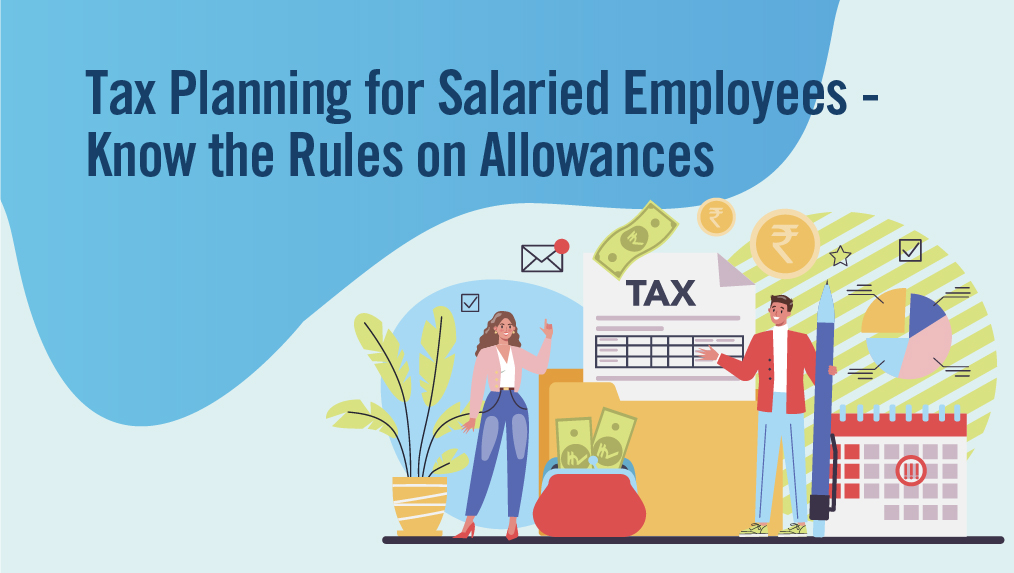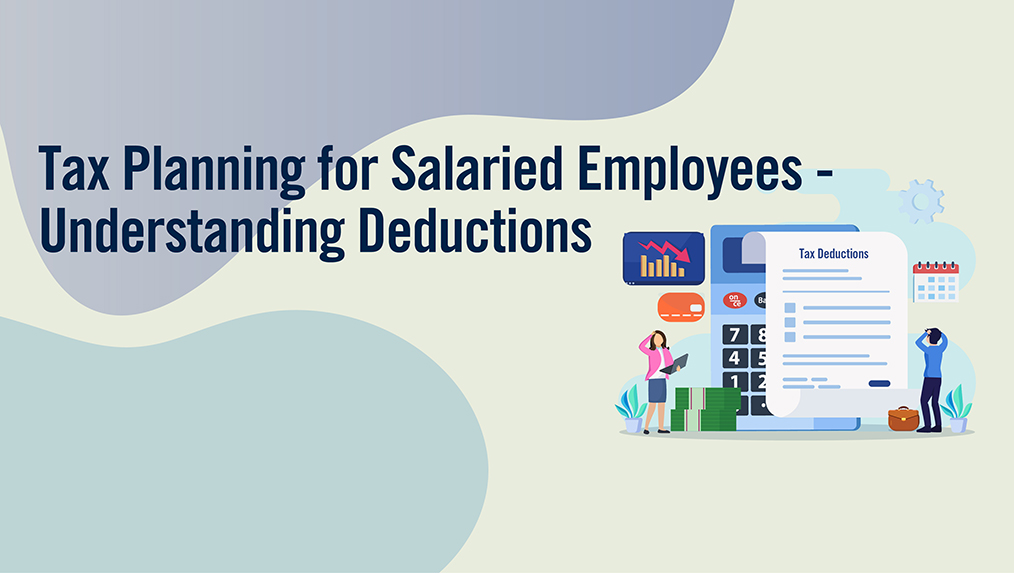SET HOUSEHOLD BUDGETS
An easy and smart guide to managing your household expenses effectively
Should you buy a car at the start of your career?
Many of us dream of owning a car. But buying and maintaining your first car can be a daunting affair given the price rise, increase in interest rates, and fuel prices and other costs related to maintaining a car.

May 2023 . 5
Should you buy just because there is a discount season?
Flash sales are a rage around the world. Many major brands offer heavy discounts to lure customers to buy their products. Consumers have limited time to think. If they delay, chances are that the product may go out of shelf. In this mad rush, consumers can fail to distinguish between their ‘want’ and ‘need’.

Apr 2023 . 3
4 Ways to Fund Your Higher Education Overseas
An international degree could be a great launchpad for your career. It gives you global exposure and could help you land your dream job. If you’re eyeing a foreign education, you're probably someone who needs financial planning so that you can achieve your financial goals and be prepared for the expenses involved. This calls for a sound investing strategy, based on thorough knowledge of how financial planning works.
You can make your foreign education dream a reality by following these four key steps to build your financial corpus:

Mar 2023 . 3
How To Save Smarter
Start saving money in your 20s, you’ll thank yourself in your 30s! Why should you save money?

Feb 2023 . 4
10 Things to Consider During Asset Allocation
Effective asset allocation aims to balance reward and risk by allocating investment funds into a variety of assets, according to an investor’s goals, time horizon and risk tolerance. Allocating assets to equities, fixed income, cash etc. each comes with its own level of risk, and unique characteristics that could change over time. Here are some factors to consider as you weigh your asset allocation decisions:

Feb 2023 . 4
4 Steps to Financial Wellbeing
Gen-Z: achieve financial freedom with savings, investments, insurance, emergency funds.

Jan 2023 . 5
7 Things to Consider When Choosing Between a Car and a Cab
Buying a car is always a momentous occasion. It is arguably the single most expensive purchase you may make, other than buying your house. It calls for a thorough evaluation of your finances and careful planning. But now, with the growing popularity and convenience of ride-hailing apps, the question arises - do you still need to buy a car, or could you just rent a cab wherever you need to go? We dive into the pros and cons of each decision:

Dec 2022 . 4
How to budget your expenses efficiently
Financial security is an important goal and setting a budget and adhering to it can only help to attain this goal. Making a budget to maximise savings and optimising investment planning while managing your expenses and finances can be difficult but, it is the first step in accomplishing your short-term and long-term financial goals. The more efficiently you budget your expenses, the better your financial planning, and the closer you are to achieving your financial goals.

Sep 2022 . 5
A Beginner’s Guide to Asset Allocation
Asset allocation is an essential part of investment planning. The aim is to diversify your investments in order to enable you to mitigate the risk posed by market volatility.

Aug 2022 . 4
It’s Time for a Financial Health Check-up
A periodic check-up is the best way to keep track of your health – and the same goes for your finances. When it comes to managing physical health, we simply consult doctors and follow their advice. Financial health can be trickier. We don’t always know where to begin or whom to consult, and we end up neglecting it.

Jul 2022 . 5
How to Prepare your Finances for Starting a Family
Your mid-20s are a defining phase of your life, and it’s important to consider the financial implications of each move you make. Financial planning for young adults is essential, and one of the most consequential decisions is starting a family. If you’re contemplating this decision, you’re someone who needs financial planning. Raising a child may require as much as Rs. 2 crore1, when you add up all the expenses such as education, healthcare, etc., from the day they are born to the day they become financially independent. Therefore, this emotional decision requires a long-term investment plan.

May 2023 . 6
50-30-20 Rule in budgeting personal finance
The 50-30-20 budgeting rule encourages allocating 20% of income to savings, 50% to vital and necessary spending, and 30% to expenses for wants & leisure.

Apr 2023 . 4
Why You Should Make Saving Money a Priority
The global coronavirus pandemic of 2020 has been an eye-opener for many. It has taught us a lot about life’s unpredictability, as also the importance of saving money and making prudent investments. It has arguably made us smarter investors and prepared us for future emergencies, medical or otherwise.

Mar 2023 . 5
Happy Financial Freedom
There is something about women that often gets under appreciated – ability to smartly juggle between work and family.

Jan 2023 . 9
Financial tips to keep in mind while moving to a bigger city
How to Prepare Financially for moving to a New City. If you're intending to relocate to a new place to advance in your career, it's critical that you have a firm handle on your financial condition.

Nov 2022 . 2
5 Ways to Manage Household Expenses as a Working Woman
The working woman today wears many hats. She may have to juggle her work, look after the family, and also run her household. With so many demands on her time, it can be difficult to track and manage household expenses.
If this sounds like your predicament, here are some useful tips to help you stay on top of your expenses:

Sep 2022 . 3
5 Tips For Household Budgeting – A Quick Look
Household budgeting involves a substantial personal finance planning process. Through planning, one can live a comfortable lifestyle, ensure savings and investments, and wealth creation - in other words, enjoy financial planning benefits. Here are some tips to show you how to deal with unexpected expenses, manage daily expenses, and ensure savings.

Jul 2022 . 3
5 Tips for a Successful Business Loan Application
Improvements in gender equality and opportunity have driven unprecedented growth in female entrepreneurship in recent years. More and more women are finding ways to pursue their passion while becoming financially independent. If you’re one of them, and need funding for your venture, you will have to apply to a bank for a business loan. Here’s how you can make sure it’s a success:

May 2023 . 3
How to Monitor Your Financial Progress
Once you have defined your financial goals, it’s important to keep checking your progress, to see if you’re on track. This way, you can change course or revise your strategy if you feel like you’re falling behind. Here are some tools and metrics that you can use to evaluate your financial progress and know where you stand:

Apr 2023 . 5
How to Remain Financially Independent While You Take a Career Break
As jobs become more stressful, many people are taking a career break to recharge their batteries. Some also take a break to pursue an activity that they are passionate about.

Mar 2023 . 5
7 Financial Tips to Help You Plan Your Vacation
Vacations are fun, adventurous and a great way to spend quality time with your loved ones. However, they’re also expensive and require careful financial planning. Follow these 7 handy tips to ensure that your dream holiday doesn’t dent your finances:

Jan 2023 . 4
Why Home Loan Insurance Matters
Learn how a home loan insurance policy works and its benefits.

Nov 2022 . 3
7 Ways To Decide If You Should Buy A House Or Rent
Choosing a house is one of the most consequential financial decisions you will make. Whether you are buying or renting, it constitutes one of your largest expenses, so it’s important to get it right. But how should you decide whether to buy or rent?
Use this 7-point checklist to help you choose:

Sep 2022 . 6
In 10 Steps Sharpen Your Goal-Setting Strategy
Experts say if you fail to plan, you plan to fail. This is as true in finance as it is in life. When it comes to financial planning, you need a sharp and effective strategy to make the most of your money. If you’re looking to strengthen your finances, here are ten steps to sharpen your goal-setting strategy:

Jul 2022 . 7
Tax Planning for Salaried Employees - Know the Rules on Allowances
Salaried employees can save taxes by meticulously utilising the gamut of exemptions and deductions available under various sections in the Income Tax India Act, 1961.

May 2023 . 8
How to inculcate financial discipline in children
In today’s competitive and consumerist society where parents have little control over their children’s spending habits, it is difficult to teach them the value of money and its accountability. Childhood experiences and mental processes have a huge impact on how we handle our finances. As a result, it makes sense to instill good financial habits in children from a young age. Here are a few ideas to inculcate the right money habit among children.

Apr 2023 . 2
Tax Planning for Salaried Employees - Understanding Deductions
Here’s a look at deductions that a salaried employee can avail.

Mar 2023 . 8
Repay the loan or invest the bonus?
Many experts would recommend our priority should be to pay off high interest debt. Needless to say, paying off debt will provide you with peace of mind. It will also help you free up funds for other obligations/goals. Here’s how you can use your surplus cash smartly.

Jan 2023 . 4
7 Financial Habits to Avoid
"Earning a lot of money is not the key to prosperity – how you handle it is."
Dave Ramsey, leading American financial guru.
Building a corpus for the future requires careful planning and discipline. It’s important to inculcate good financial habits that will help you make progress in your financial plans. At the same time, it is important to avoid habits that might drag you back. Here are 7 financial habits that might be preventing you from growing your money effectively.

Oct 2022 . 4
Managing Your Finances in Your 40s
You might be about 20 years away from your retirement, and may already have been prudent enough to start saving towards this goal years ago – but as you enter your 40s, it’s the right time to up your financial game.

Aug 2022 . 3
How Can You Make Your Lifestyle Match Your Finances?
You might be living life king-size, but check if your lifestyle is out of sync with your finances.

Jul 2022 . 3
Benefits of goal-based investing
Goal-based investing is all about identifying your life goals (short term and long term) and channelizing your finances in order to achieve them. The importance of goal-based investing is that it not only provides you with a smart investment strategy but also a path to attaining your goals in a timely manner.

May 2023 . 3
Personal finance checklist to put your salary to its best use
Healthy financial habits can go a long way in saving and managing your income and expenses smartly.

Apr 2023 . 3
Should you take on more debt in your 50s? Why you should aim to be debt free
If you can manage to rid yourself of debt by age 50, you'll be setting the stage for a financially healthy retirement. If you manage to pay off by then, you'll have several years to put your savings to your retirement funds, laying the groundwork for a comfortable life once you quit working. By the age of 50 it is ideal to be debt-free, and your retirement savings should be enough to give you a comfortable life.

Mar 2023 . 2
Prepaying a Loan Before Retirement
We all face the dilemma of repaying loans or investing and saving for retirement. Salaried individuals usually rely on loans to meet their goals of housing and other discretionary aspirations.

Jan 2023 . 3
How to Secure Your Family's Financial Future Before Retirement
Give yourself peace of mind by securing your family’s long-term future.

Nov 2022 . 4
How to Budget for a Better Future
Household debt in India continues to rise – as per the All India Debt and Investment Survey 2021, household debt’s share of GDP rose from 32.5% in 2019-20 to 37.3% in 2020-211. Budgeting helps avoid these scenarios and helps meet the needs of a growing household. It’s one of the most important tools in building a successful financial future because it helps you get the most out of your money.

Sep 2022 . 4
5 Tips to Boost Your Savings Before Retirement
Saving for retirement must form an important aspect of your financial goal planning at any stage of life, but particularly so when you are in your 50s. Many people make the mistake of deferring retirement planning till it’s too late. The concept of increasing savings remains limited to Employee Provident Fund or Public Provident Fund contributions.

Jul 2022 . 4
7 Ways to Secure your Grandchildren’s Financial Future
As you enter retirement, you will have plenty of time to plan your finances carefully. If you have already met all your personal finance goals and your dreams, you may start thinking about others in the family. Many people want to make provisions for their grandchildren as part of their goal planning. They either want to leave their wealth to them, or want to pursue financial planning to provide better financial security for their grandchildren.
This goes beyond just offering cash gifts for birthdays or engaging in estate planning. It involves assistance like funding their college fees, helping them pay their EMI or helping them get started with investment planning .
Here are 7 ways you can secure your grandchildren’s financial future:

May 2023 . 4
Should you use your retirement corpus to pay off loans?
Retirement is the era of life in which you bid farewell to active employment and begin to enjoy your leisure time.

Apr 2023 . 2
All you need to know about reverse mortgage
Reverse mortgage can serve as a good alternative source for funding retirement for senior citizens who own a house.

Mar 2023 . 4
Where to invest your emergency fund corpus
There are many avenues of saving but choosing the right one is essential. An emergency fund helps you plan for unexpected expenses. A financial emergency can come in any form – loss of income, house repair, healthcare expense, etc. Thus, your emergency corpus should be able to take care of your routine cash outflows such as rent, EMI, electricity bill, health insurance/life insurance premiums, school/college fee, grocery bill and so on for a period of at least six months.

Jan 2023 . 4
4 Tips to Plan your investments for a fulfilling retirement
The nature of your financial goal planning changes in retirement. Before retirement, the emphasis would have been on building a sufficient retirement corpus, while saving heavily and deferring expenses. Now, you may no longer receive a fixed income, but you finally have time to pursue the hobbies you have been putting off all these years.
With proper investment planning, you can achieve your goals, manage your expenses and finances and truly enjoy retired life. You should continue to invest in options like mutual funds so that you don’t just rely on your savings, but make your money work for you. At the same time, opt for instruments that minimise risks, offer stable returns and keep your funds secure.
Here are four ways to balance financial growth and security for a fulfilling retirement:

Nov 2022 . 5
Building Your Post-Retirement Financial Goals
Retirement is the culmination of one chapter of your financial planning journey – but it doesn’t mean you stop financial planning for good. In fact, the next chapter will soon begin. This post-retirement planning isn’t just a continuation of pre-retirement planning, though, because the nature of your financial situation changes once you retire.

Sep 2022 . 2
How To Earn Regular Income After Retirement
As you retire, you enter a special phase of your life. At this point, you’ve probably fulfilled most of your responsibilities. You may be eager to pursue your hobbies and might be looking forward to a relaxed life. It’s a great time to enjoy the fruits of good financial planning.

Jul 2022 . 4
PGIM India Asset Management Private Limited
(CIN - U74900MH2008FTC187029)
Toll Free Number: 1800 266 7446
Email: care@pgimindia.co.in
This is an Investor Education and Awareness Initiative by PGIM India Mutual Fund.
All the Mutual Fund investors have to go through a one-time KYC (Know Your Customers) process. Investor should deal only with the Registered Mutual Funds (RMF). For more info on KYC, RMF and procedure to lodge/redress any complaints, visit https://www.pgimindia.com/mutual-funds/ieid.
MUTUAL FUND INVESTMENTS ARE SUBJECT TO MARKET RISKS, READ ALL SCHEME RELATED DOCUMENTS CAREFULLY. Read more
All the Mutual Fund investors have to go through a one-time KYC (Know Your Customers) process. Investor should deal only with the Registered Mutual Funds (RMF). For more info on KYC, RMF and procedure to lodge/redress any complaints, visit https://www.pgimindia.com/mutual-funds/ieid.
MUTUAL FUND INVESTMENTS ARE SUBJECT TO MARKET RISKS, READ ALL SCHEME RELATED DOCUMENTS CAREFULLY. Read more
The information contained herein is provided by PGIM India Asset Management Private Limited (the AMC)
on the basis of publicly available information, internally developed data and other third-party
sources believed to be reliable. However, the AMC cannot guarantee the accuracy of such information,
assure its completeness, or warrant such information will not be changed. The information contained
herein is current as of the date of issuance* (or such earlier date as referenced herein) and is
subject to change without notice. The AMC has no obligation to update any or all of such
information; nor does the AMC make any express or implied warranties or representations
as to its completeness or accuracy. There can be no assurance that any forecast made
herein will be actually realized. These materials do not take into account individual
investor's objectives, needs or circumstances or the suitability of any securities,
financial instruments or investment strategies described herein for particular investor. Hence,
each investor is advised to consult his or her own professional investment / tax advisor / consultant for advice in this regard.
The information contained herein is provided on the basis of and subject to the explanations, caveats and warnings set out elsewhere herein.
The views of the Fund Manager should not be construed as an advice and investors must make their own investment decisions regarding investment/ disinvestment in securities market and/or suitability of
the fund based on their specific investment objectives and financial positions and using such independent advisors as they believe necessary.




